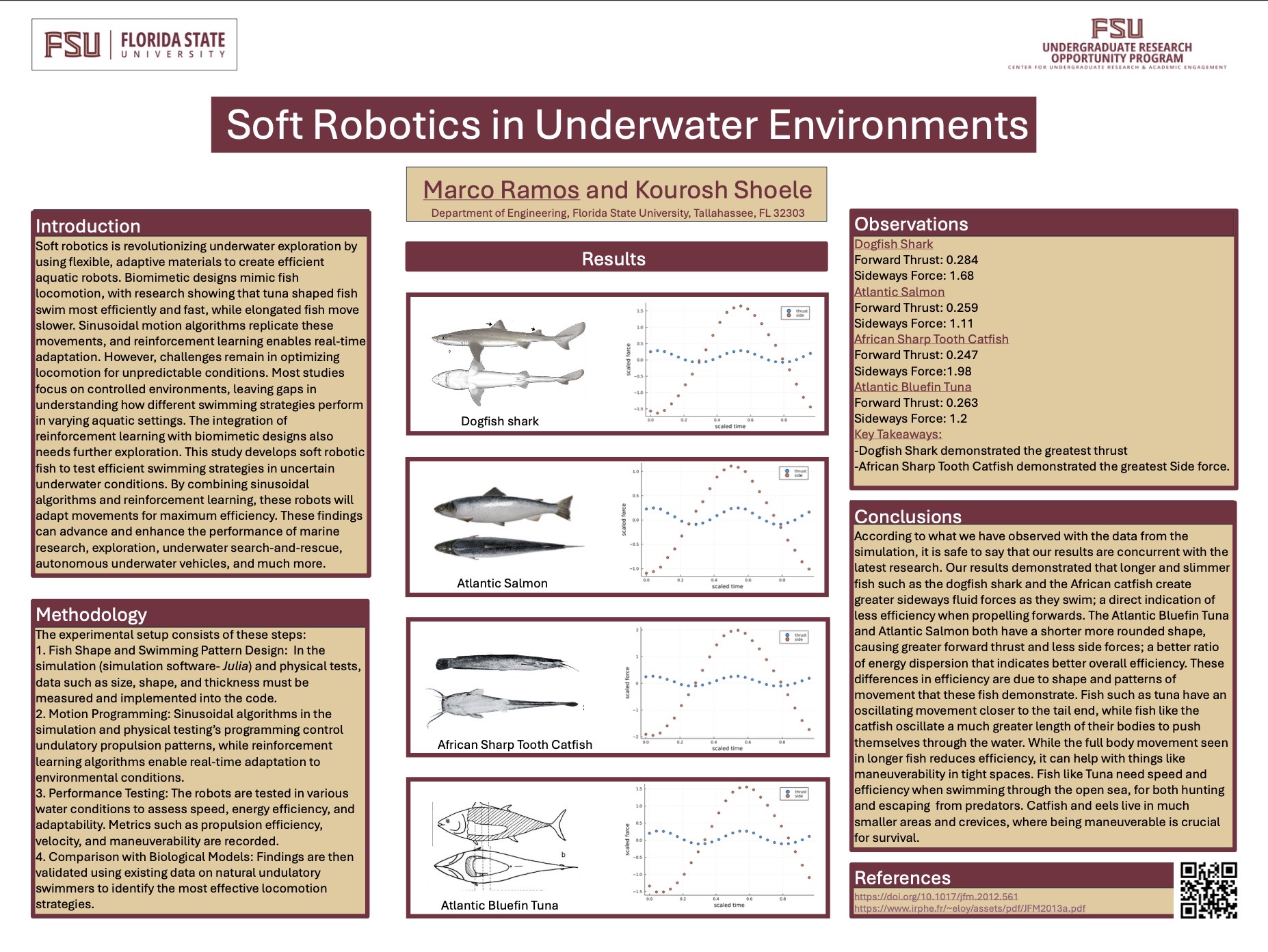Research Symposium
25th annual Undergraduate Research Symposium, April 1, 2025
Marco Ramos Poster Session 3: 1:45 pm - 2:45 pm/ Poster #194

BIO
My name is Marco Ramos and I am currently a second year Mechanical Engineering student at Florida State University. I was born and raised in Miami, Forida, where I found a passion for making things, fixing things, and working with my hands. I am now the Co-founder of the business The Campus Fix, a locally based handyman service in Tallahassee. Besides my passion for hard work, I also love spending time in nature, traveling, and trying new things.
Soft Robotics in Underwater Environments
Authors: Marco Ramos, Kourosh ShoeleStudent Major: Mechanical Engineering
Mentor: Kourosh Shoele
Mentor's Department: Mechanical Engineering Mentor's College: College of Engineering Co-Presenters:
Abstract
My project intends to determine the most efficient soft robot locomotion for uncertain underwater conditions by developing biomimetic soft fish robots that are programmed to mimic different swimming behaviors of fish species. This project tests a versatile technology that can have many important underwater applications in our future, especially considering that over 90 percent of the ocean remains uncharted.
The biomimetic robots are able to recreate the natural movements of the fish by using sinusoidal algorithms, generated by a program, that generate electronic outputs. These outputs create a fluid movement from head to tail of the robotic fish, a movement that can be recreated in virtual simulations, in order to verify the velocity and efficiency of these different swimming modes. Concurrent research suggests that tuna and salmon shaped swimmers are most efficient at high speed, while elongated fish shapes have less efficiency at high speed, but more manuverability. By incorporating reinforcement learning, these soft robots can adapt their movements based on environmental conditions, improving both speed and efficiency over time.
The findings of this study have significant implications for underwater robotics, particularly in applications such as underwater mapping, search-and-rescue missions, and even military reconnaissance. By optimizing energy-efficient locomotion strategies, this research can contribute to advancements in soft robotics and autonomous underwater vehicles, allowing for better performance in complex aquatic environments.
Keywords: Soft Robot Fish Mechanical Engineering


